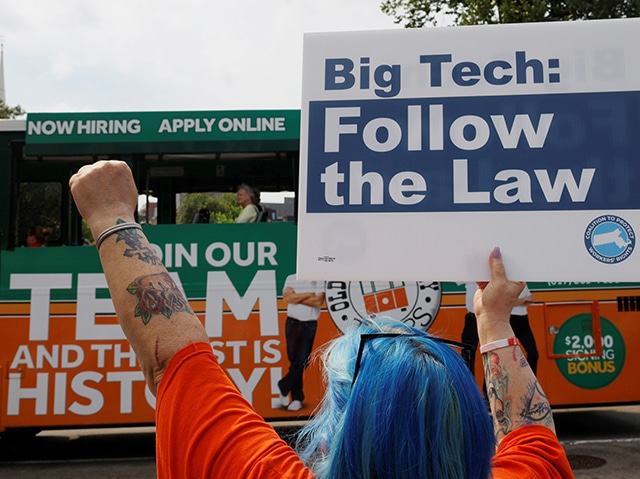The U.S. Department of Labor on Tuesday issued a final rule that will force companies to treat some workers as employees rather than less expensive independent contractors, in a move that has riled business groups and will likely prompt legal challenges.
The rule is widely expected to increase labor costs for industries that rely on contract labor or freelancers, such as trucking, manufacturing, healthcare and app-based “gig” services.
Independent B-Ds concerned
The rule has also been closely watched by independent broker-dealers, whose affiliated advisors are independent contractors operating their own businesses. It’s unclear yet whether the rule would require their advisors to become b-d employees.
Dale Brown, president and CEO of the Financial Services Institute, which represents more than 80 firms with over 130,000 affiliated financial advisors, said FSI is analyzing and reviewing the rule.
“We fear the DOL’s final rule will undermine our financial advisor members’ independent contractor status, despite thousands of comment letters, multiple hearings and many meetings in which stakeholders, including our members, expressed their desire to remain independent,” he said.
‘Economically dependent’ test
Most federal and state labor laws, such as those requiring a minimum wage and overtime pay, apply only to a company’s employees. Studies suggest that employees can cost companies up to 30% more than independent contractors.
The rule will require that workers be considered employees rather than contractors when they are “economically dependent” on a company. It does not go as far as wage laws in California and other states that place even greater limitations on independent contracting.
It replaces a regulation by Republican former President Donald Trump’s administration that had made it easier to classify workers as independent contractors. The new rule is likely to be challenged in court by trade groups and businesses.
Under the Trump era rule, workers who owned their own businesses or had the ability to work for competing companies, such as a driver who works for both Uber Technologies and Lyft, could be treated as contractors.
The new rule is set to take effect on March 11.
Who potentially benefits
Acting U.S. Labor Secretary Julie Su during a call with reporters on Monday said the misclassification of workers as contractors rather than employees particularly harmed low-income workers who would benefit the most from legal protections afforded to employees such as a minimum wage and unemployment insurance.
“A century of labor protections for working people is premised on the employer-employee relationship,” Su said.
But according to some business groups, the rule tips the scales too far in favor of finding that workers are employees rather than contractors, which will deprive millions of workers of flexibility and opportunity.
“Making matters worse, the rule is completely unnecessary, as the Department continues to report success in cracking down on bad actors that are misclassifying workers,” Marc Freedman, vice president at the U.S. Chamber of Commerce, said in a statement. He added that the Chamber, the largest U.S. business group, is considering challenging the rule in court.
‘Gig’ workers
The Labor Department has said the rule was designed to crack down on industries, including construction and healthcare, where misclassification of workers is common. But its potential impact on app-based delivery and ride-hailing services, whose business models depend on contract “gig” labor, has garnered the most attention.
Chamber of Progress, a trade group that represents tech companies, said the rule could impact gig workers depending on how the Labor Department enforces it. Reclassifying independent contractors as companies’ employees would negatively impact an estimated 3.4 million gig workers, resulting in $31 billion in lost income, the group said.
Companies including Uber and Lyft have expressed concerns about the rule but also have said they do not expect it to lead to their drivers being classified as employees. CR Wooters, Uber’s head of federal affairs, said in a statement that the new rule “does not materially change the law under which we operate.”
“Drivers across the country have made it overwhelmingly clear — in their comments on this rule and in survey after survey — that they do not want to lose the unique independence they enjoy,” Wooters said.
Lyft and DoorDash in separate statements also said they did not expect the rule to change the way they do business.
“The vast majority of Dashers already have a full- or part-time job or are primary caregivers, students, self-employed, or retired. That’s why they’re not looking for the structure, shifts, and hour demands of employment,” DoorDash said.
The Labor Department said it would consider factors such as a worker’s opportunity for profit or loss, the degree of control wielded by a company over a worker, and whether the work is an integral part of the company’s business to determine whether a worker should be classified as an employee or contractor.
Business groups have said the long list of factors that could determine a worker’s classification will create confusion and inconsistent results, which in turn could spur costly class actions alleging that workers were misclassified.
This article was provided by Reuters. Rethinking65 contributed to this article.







